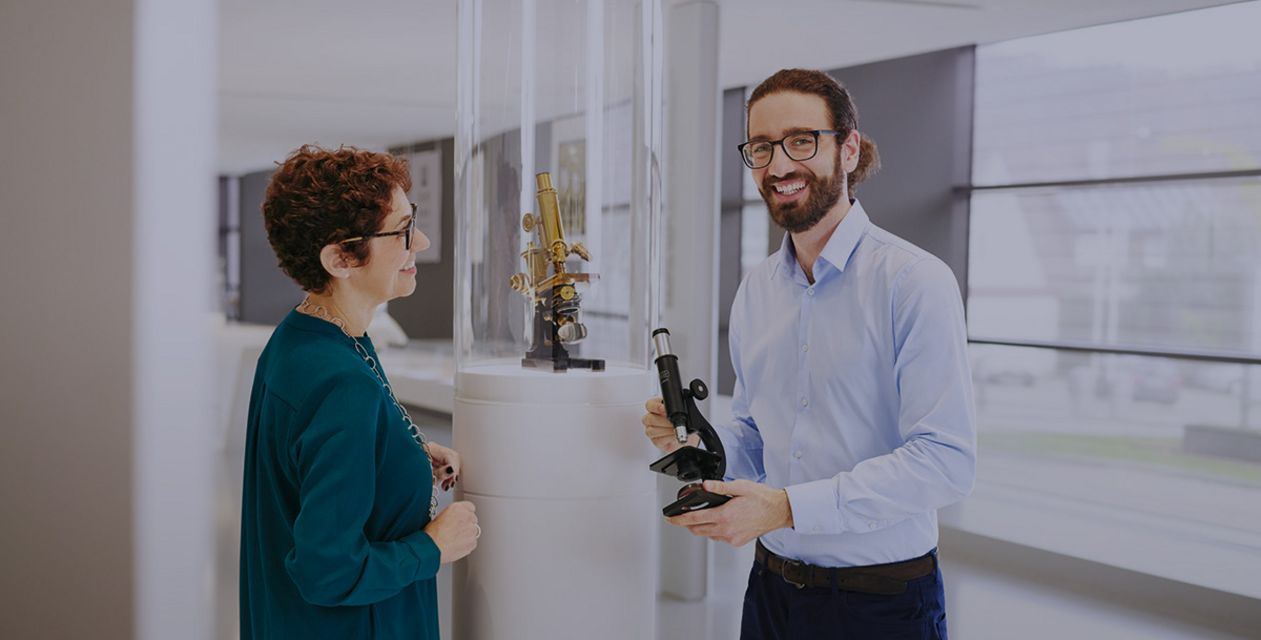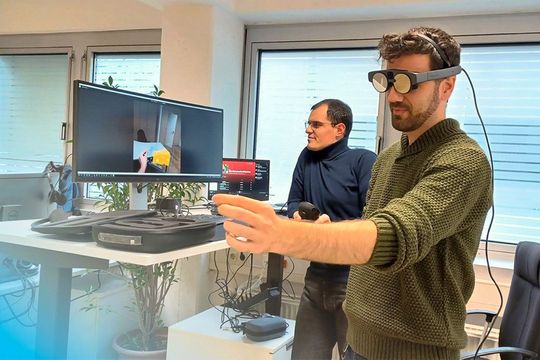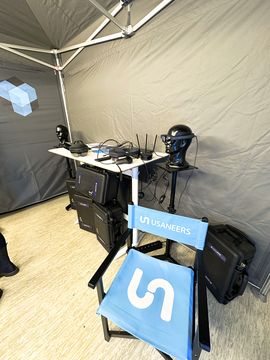Kickstart your professional career
Studying in Germany: Your gateway to a successful career
Lots of young people from all over the globe come to Germany to study. Some stay just one or two semesters. Others stay on to launch their professional careers. And why not? Thanks to the skills shortage here, their chances of landing their dream job are pretty good.
Studying in Germany may be your starting point
Germany is a popular study destination, attracting students from all over the world. In the , there were over 440,000 international students enrolled in German higher education institutions. They come to Germany to experience a different country, a different culture, a different language. But mainly, they come to get a good education that will springboard them into their first job. Many of these bright young people in fact stay on after graduation and launch their careers here.
People like . For him, it was always going to be Germany: “There are so many opportunities and ideas here. So much innovation and knowledge. And so many good companies. Germany is very international. I love it. It’s where I want to be.” He first came to Germany back in 2017, in his mid-twenties, to do his master’s in . Now, several years on, he’s still in Germany and working in his absolute dream job as a software developer for surgical devices in Munich.
Help and support from others
Stamatis has always been fascinated by the virtual world, even as a child, and now he’s making it a reality for others. Growing up in Greece, he dreamed big, and it seemed there was nothing he could not learn if he put his mind to it (with the possible exception of breakdancing, but that’s another story!). He attended university in Athens and worked in a musical theatre after graduating with his bachelor’s. It was about then that he decided to leave the country. And he hasn’t looked back since, because in Germany he has always felt accepted and welcome. “That made my decision to stay even easier. I had the good fortune to only ever encounter good people – people who helped me, each one in their own way.”
It wasn’t all plain sailing for Stamatis though. There were hard times too. It’s never easy settling into a foreign country, plus, he was often short money because his parents were unable to support him financially. But he carried on, completing his master’s in the spring of 2020 – just in time for the pandemic. Thanks to lockdowns and economic uncertainty, few companies were taking on staff, especially not new graduates like him with no post-study work experience. In the end, he moved south to Stuttgart, where he had friends, who helped him find various casual jobs. During that time, Stamatis worked at a petrol station, did a stint as a cleaner at a nursing home, and earned a little extra cash counting passengers on trains. Yet he did not lose heart. He applied for job after job after job. And in the end, he struck it lucky, landing a position as an extended reality developer at a company in Munich in February 2021. “This job has taught me so much about software development. It has opened my eyes to what I really want to do for the rest of my career.”
An earlier decisive moment in his career path came during his master’s studies at Lübeck university’s Institute for Robotics. Browsing a job portal one day, he noticed an ad for a paid internship position: a company in Baden-Württemberg was looking for someone to help with a virtual reality project. He applied. “I never dreamed I would be accepted and that my life would change forever”, he says. Even better, the project was ideal for his master’s thesis.
“I never dreamed I would be accepted and that my life would change forever”
Stamatis
The practical experience Stamatis gained during his internship was critical to his successful transition to employment after graduating. Another option for gaining this all-important experience is dual study: combining your academic studies at the higher education institution with practical vocational training in a company or public-sector organisation. It’s like doing a degree and an apprenticeship concurrently. That may sound like a lot of hard work, but it’s worth it for the industry contacts you make along the way and the prospect of moving into a job with the same company once you graduate. The apprenticeship salary is a big plus too.
Prime conditions for a successful career launch
If, like Stamatis, you are a citizen of another European Union (EU) country, you can generally stay in Germany after graduation and participate in the labour market without restriction. And if you’re from outside the EU, you can extend your student residence permit by a further 18 months in order to look for a job. Your chances of finding a job in that time are pretty good because German businesses, government and social institutions currently have a severe .
To get an idea of your chances, you only need to look at the , which show that more than a third of all young people from non-EU countries who commenced their studies in Germany between 2006 and 2011 were still living in Germany ten years later. That’s one of the highest stay rates in the OECD. These young people integrated successfully into the labour market and into German society generally. The statistics also show that some 28 percent of these former international students had taken German citizenship, with the highest naturalisation rates found among former students from Cameroon, Brazil and India.
Further support for the transition to professional life
Further support for the transition to professional life is available from on-campus careers centres. Online job portals (there are many) and the “ are also very helpful. Another excellent resource, providing valuable information on living and working in Germany specifically for international students and professionals, is the . There, people who have come to Germany to study or find work as qualified professionals tell of their experiences and talk about how they’re doing now. You’ll also find employer profiles there. A recurrent theme in these profiles is how important it is to attract skilled professionals from abroad. The portal also has extensive FAQs and guides on study and training, visa and residence options, and various professions in Germany.


